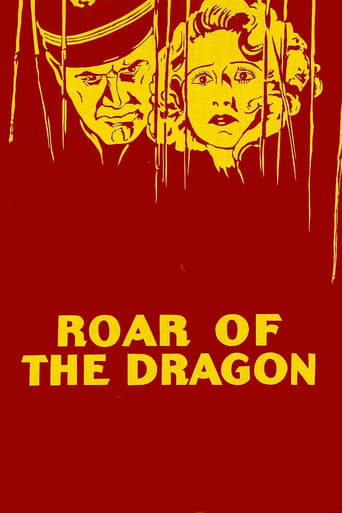JohnHowardReid
The characters are not only stereotypes, but familiar stereotypes at that. Despite its faults, however, this mini epic holds the attention throughout. The action, somewhat gruesome and blood- curdling, tells how a determined (if constantly inebriated) ship's captain saves the lives of some of his passengers when the Chinese town at which they are docked for repairs is besieged by hordes of stirred-up bandits. Richard Dix plays the hero with his usual flair, whilst the exotic Gwili Andre most successfully enacts the tantalizing "heroine". The passengers emerge as much the usual bunch of Jacks and Jills, though no doubt their characterizations seemed fresher back in 1932. Dudley Digges tends to over-state the blustering holder-of-the-purse-strings, while ZaSu Pitts rapidly becomes a real pain as the "complaining woman", but the other players, particularly Edward Everett Horton as the resourceful Busby and Arline Judge as the helpful Bridgeport, impress as real but interesting flesh-and-blood human beings. C. Henry Gordon skilfully paints a nightmarish figure as the ruthless chief of the insurgents. At this stage of his career, director Wesley Ruggles was a master of his craft. Despite the efforts of Digges and Pitts to slow proceedings down, Ruggles never lets up the pressure and the pace. Not only does he keeps suspense at a high level from first to last, but creates just the right atmosphere, aided by Cronjager's picturesque photography, Clark's extensive but brooding sets and Steiner's cleverly contrasted music score. This movie is available on an excellent Warner Archive DVD coupled with "Men of America".
Kittyman
"Roar of the Dragon" (1932) and "Barricade" (1939) have essentially the same plots (as well as length). In China in the 1930s, Mongol raiders corner westerners in a building. It is in a hotel in the former; it is in the US embassy in the latter. They are refugees from a riverboat in the former; they are refugees from a train in the latter. The leading man in the former is an alcoholic riverboat captain; the leading man in the latter is an alcoholic reporter.The IMDb rating for the former is 6.5; the rating for the latter is 5.7. Those ratings, in my opinion, should be reversed. The "Roar of the Dragon" lacks memorable scenes, while, despite its many production problems, "Barricade" has several (such as Baxter and Faye fleeing across a wheat field while the raiders try to burn them out).Additionally, the "Roar of the Dragon" suffers from numerous problems. And it is hard not to have them detract from one's enjoyment. There are plot problems. No one suggests boarding-up the hotel's windows and doors, and, as a result, one person is killed and another kidnapped. The raiders make no attempt to destroy the refugee's only means of escape, the riverboat, even though it is docked nearby and virtually undefended. There are stupidity problems. The hero makes no attempt to ferret out the spies he has been informed lurk within the hotel, or even to exercise caution by having guards protect his limited water supplies. There are coincidence problems. A main character is killed when the hero's machine gun jams just as the other is being attacked. On the other hand, other than the question of "who put the rug over the trap door?" when the embassy refugees retreat into the cellar, the actions in "Barricade" proceed quite logically, given the situation cast members are said to be in.So my advice, therefore, is to skip "Roar of the Dragon" and watch "Barricade" instead
John Seal
This brisk action movie, set in deepest Manchuria, stars Richard Dix as a dipsomaniac riverboat captain thrust into a precarious situation: rescuing a mixed bag of travelers, children, and ne'e'r-do-wells from a bandit, played with wicked intent by C. Henry Gordon. Amongst the motley crew are Zasu Pitts as a nervous society lady, Arline Judge as a flapper with a heart of gold, and Danish-born Gwili Andre as a Garbo-like woman of mystery. The film is brilliantly shot by Edward Cronjager, with some top-notch action sequences, but Howard Estabrook's screenplay doesn't do enough to establish its characters, perhaps not surprising considering the film's 68 minute running time. Nonetheless, this gets a strong recommendation, especially for fans of pre-code cinema, who will appreciate scenes such as Gordon having a hot iron applied to the hole in his head where an ear used to be.
rduchmann
Travelers in China are trapped in a Manchurian riverside village by marauding bandits. Richard Dix is the hard-drinking riverboat captain who takes charge of the situation, and he has a STAGECOACH-like assortment of tourists under his wing who must unite in the face of danger. This is an ARGOSY magazine pulp novelette version of China, admittedly, a la the work of Loring Brent, but it is quite nicely done with some good atmosphere and plenty of action. And this may be the only movie in which you see Edward Everett Horton blasting away with a machine gun. Solid 7 on the IMDB scale.


